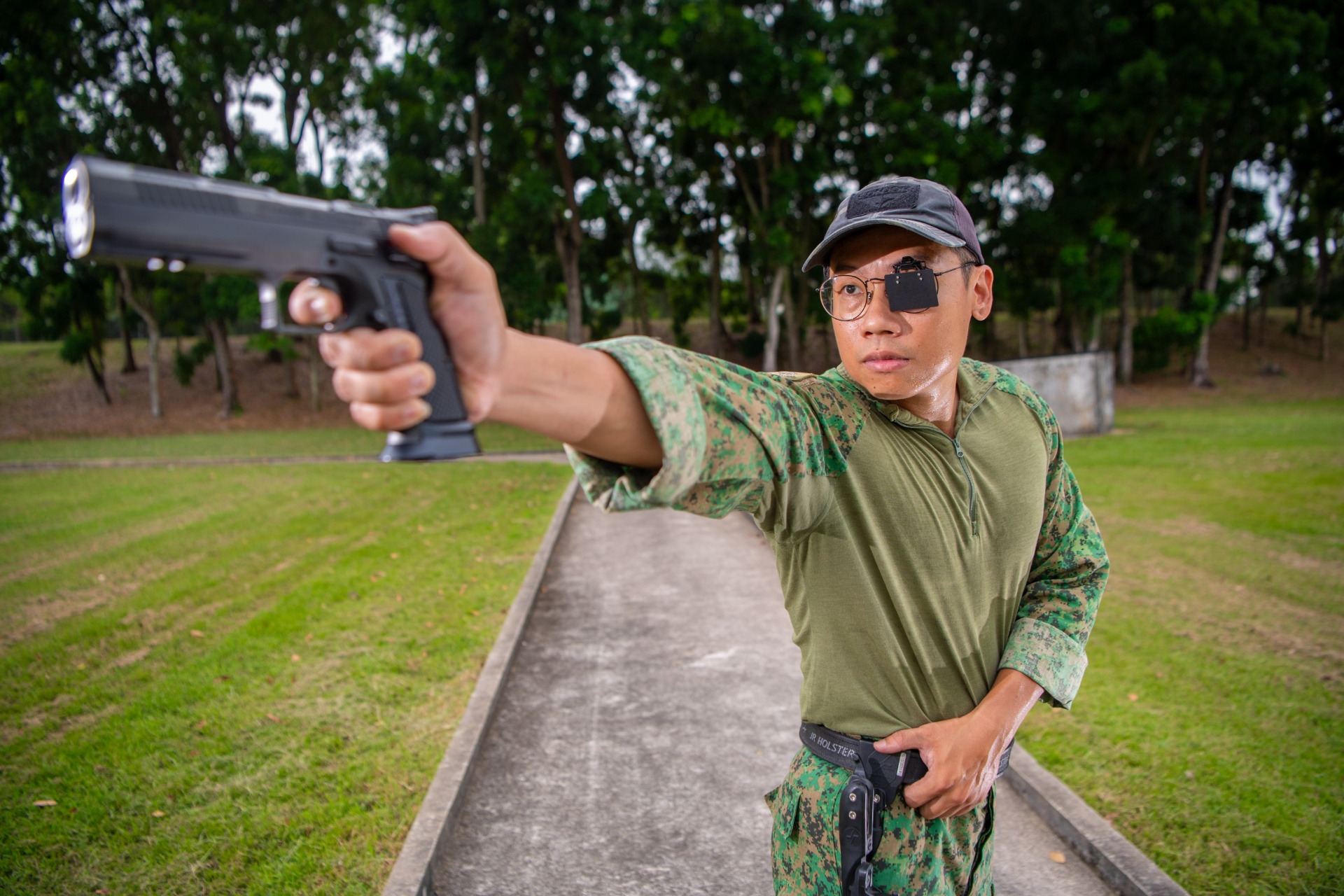TECHNOLOGY
LEADING THE FIGHT AGAINST COVID-19
30 Oct 2020
Among the winners of this year's Defence Technology Prize is the Biological Defence Programme Team from DSO National Laboratories which developed a faster COVID-19 testing kit and therapeutic antibodies to aid in the recovery of patients.
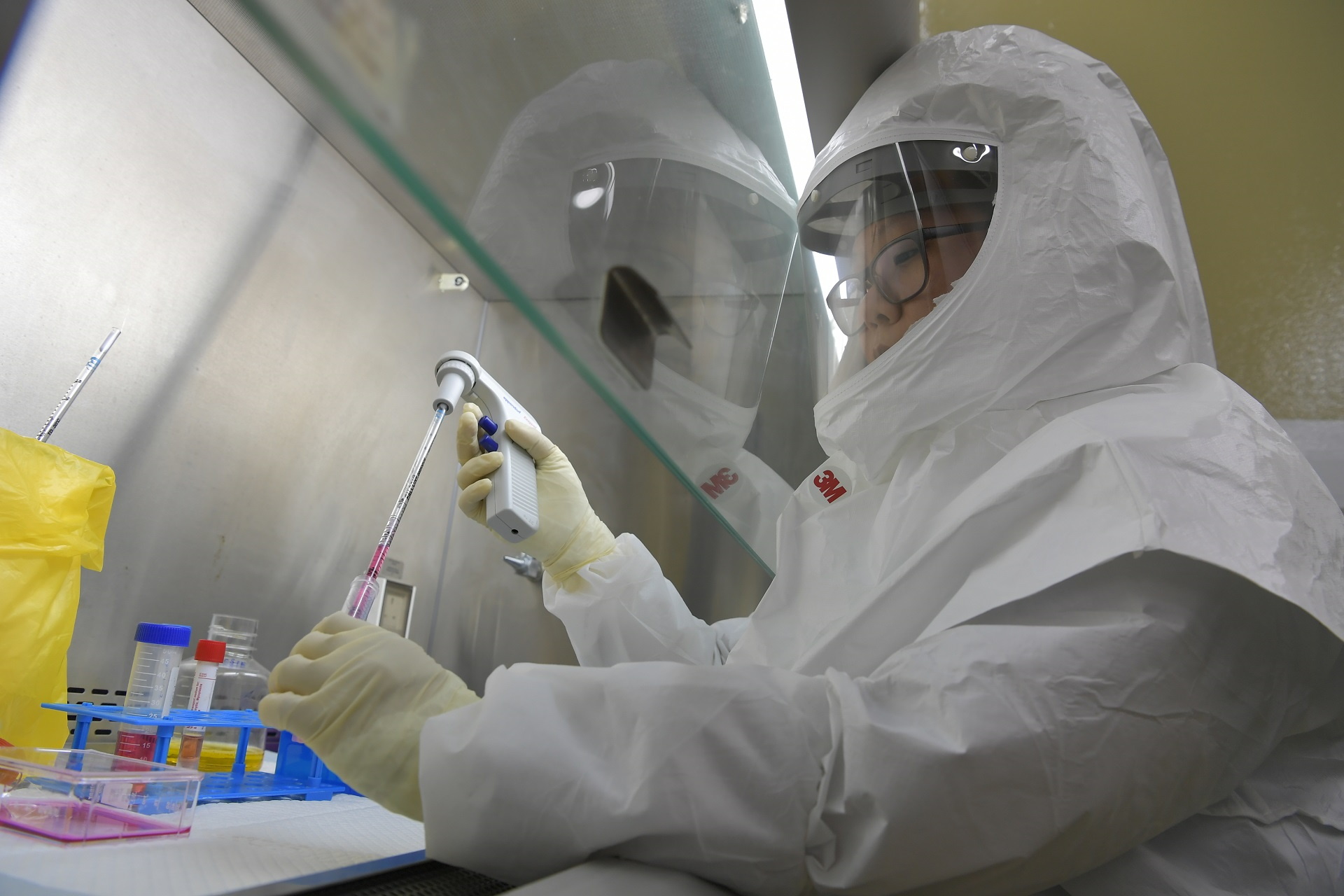

They are the team of scientists behind Resolute, the COVID-19 test kit that cut testing time by half. Using the test kit, results are known within less than two hours. They've also been working tirelessly since the pandemic broke, carrying out extensive research on the virus and developing therapeutic antibodies to help COVID-19 patients recover faster.
For their work in the fight against the pandemic, the Biological Defence Programme Team from DSO National Laboratories was awarded the Team (Research & Development) Award at this year’s Defence Technology Prize (DTP).
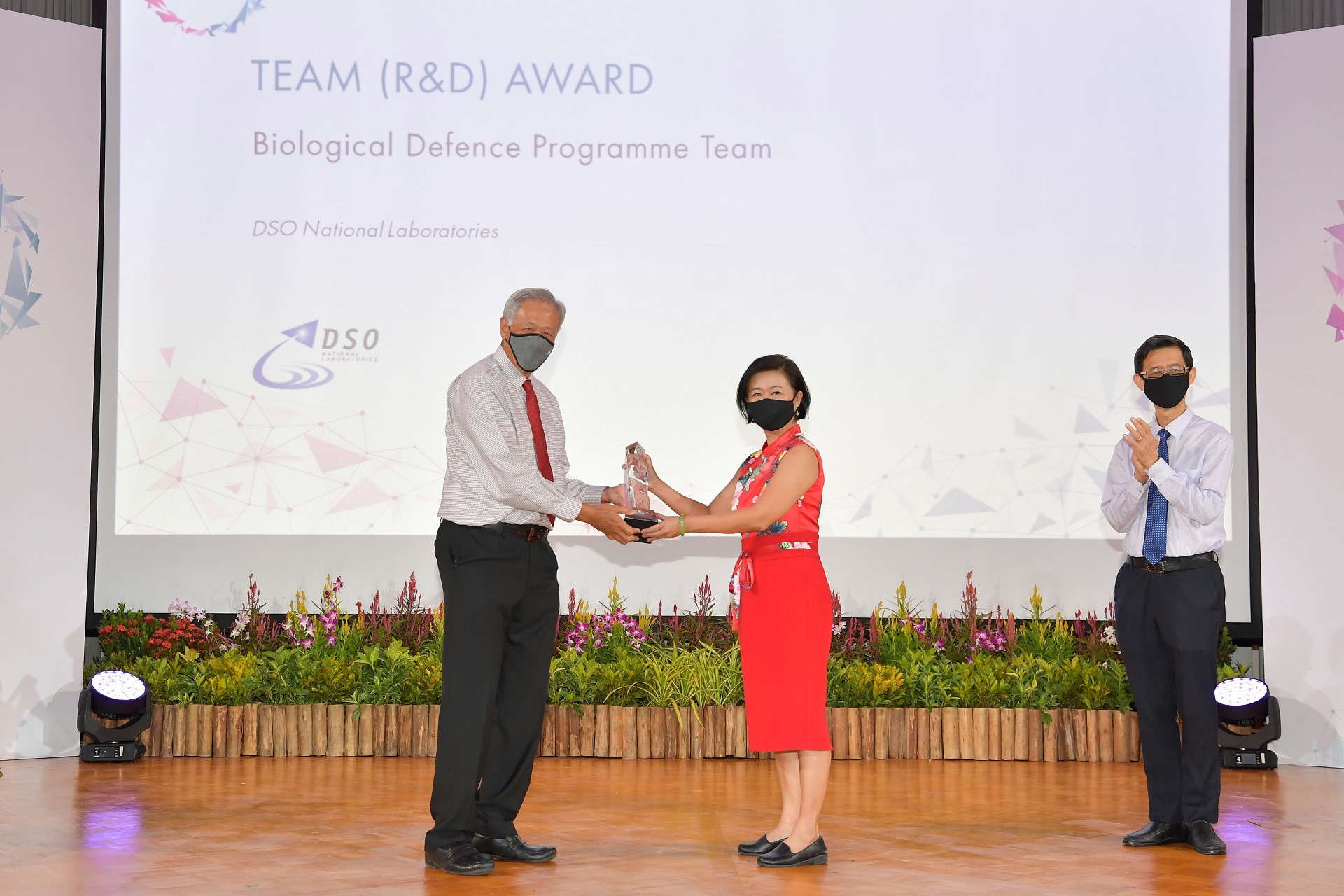
At the award ceremony held on 30 Oct at the MINDEF Auditorium, Defence Minister Dr Ng Eng Hen praised the Team from DSO for their rapid response to COVID-19. He highlighted that the Team's RT-PCR or Reverse Transcription Polymerase Chain Reaction test "gave confidence to the SAF (Singapore Armed Forces) because the SAF had to continue its critical operations."
"(In the event of a) suspicion of a (COVID-19) case, if you had to depend on other agencies, there was too long a lag time... You risk the whole force being degraded and confidence being lost.
"It made a difference because we knew that we had in-house labs, in-house capabilities by DSO," said Dr Ng.
Find out more about the team behind Singapore's biodefence capabilities.
COVID-19 is not the first pandemic that the Team has dealt with
The current COVID-19 is the longest-lasting pandemic that the Biological Defence Programme Team has dealt with. However, it is not the first nor is it the deadliest.
Singapore began building up its biodefence capabilities in 2000. Following the 1993 anthrax bioterrorism attack in Tokyo, and post-9/11 when letters laced with anthrax spores were sent to congressmen in the United States, the Ministry of Defence (MINDEF) recognised the need to develop local capabilities in handling infections such as anthrax.
Marina Hill became home to the first research facility, which is now the High Containment Laboratory.
Three years into the development of biodefence, SARS struck. The Team's competencies in the field became crucial, and DSO was called on to assist in pathogen identification, working with the Ministry of Health and then in Whole-of-Government efforts.
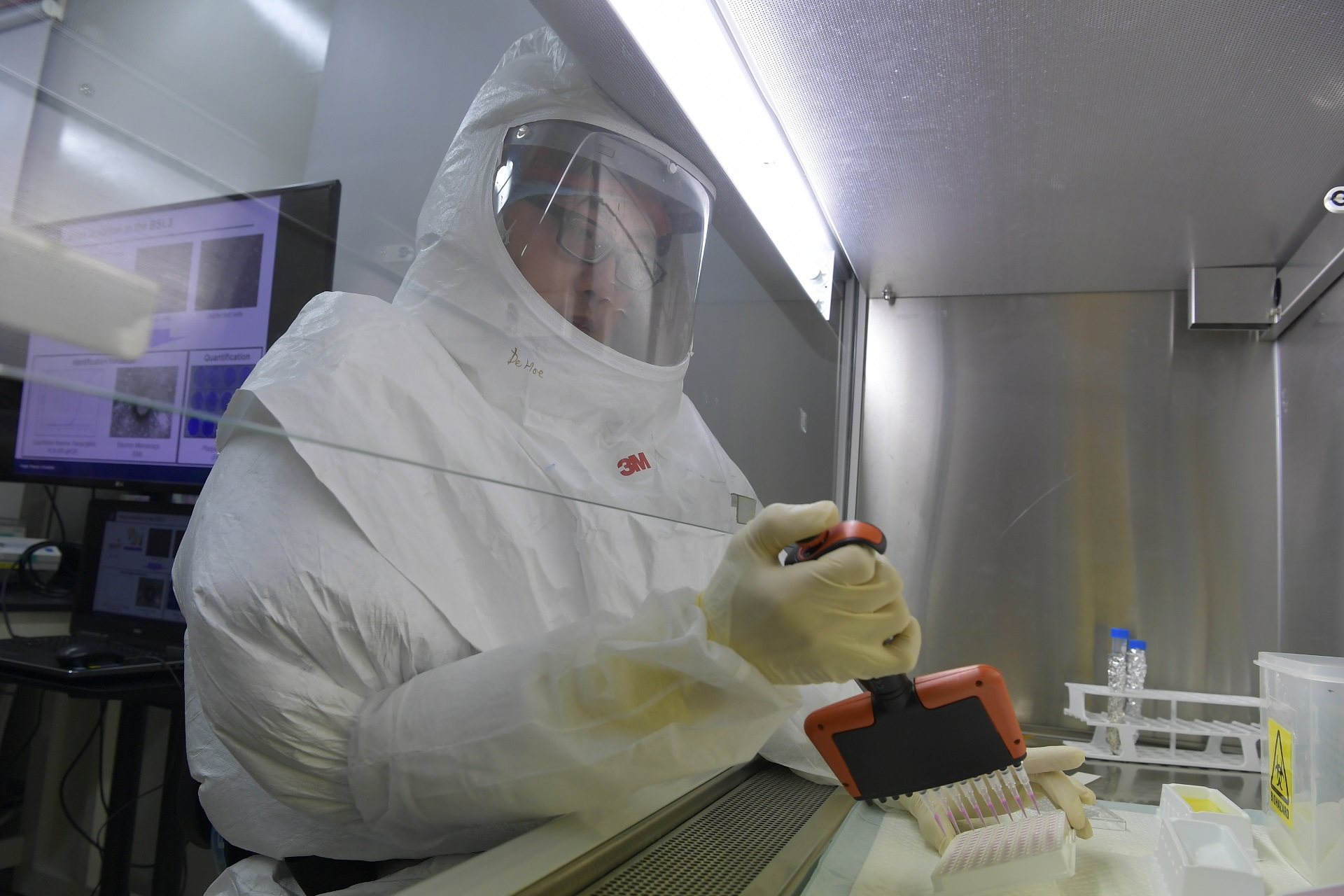
With their expertise in pathogen identification, the team went on to support the fight against other health crises such as H5N1 in 2006, swine flu in 2009, avian influenza or bird flu in 2013, Ebola in 2014, monkey pox in 2019, and the current COVID-19.
Experience in these past crises have played a key role in shaping the Team's and the nation's rapid response to COVID-19, said Associate Professor Tan Boon Huan, Director (Biological Defence) in the Defence Medical & Environmental Research Institute.
"Recognising the need for emergency treatment options for SAF soldiers, in 2004 the Ministry of Defence gave the strategic guidance and support to develop antibody research.
"This quickly led to (the development of) therapeutic antibodies for bird flu and other infections. The processes that have been laid by these projects are very important. Today, these are the same processes that were rapidly adapted to develop therapeutic antibodies against COVID-19," she explained.
Working with the SAF enabled the Team in the development of Resolute
Outside of a global pandemic, the Team's core mission is to provide innovative solutions to the SAF to protect its servicemen and women from biological threats, both natural and man-made. And it was through their work with the SAF that enabled them to come up with Resolute, a ground-breaking COVID-19 test kit developed in collaboration with the Agency for Science, Technology and Research. Resolute shortened testing time by half, and also used fewer raw materials to manufacture.
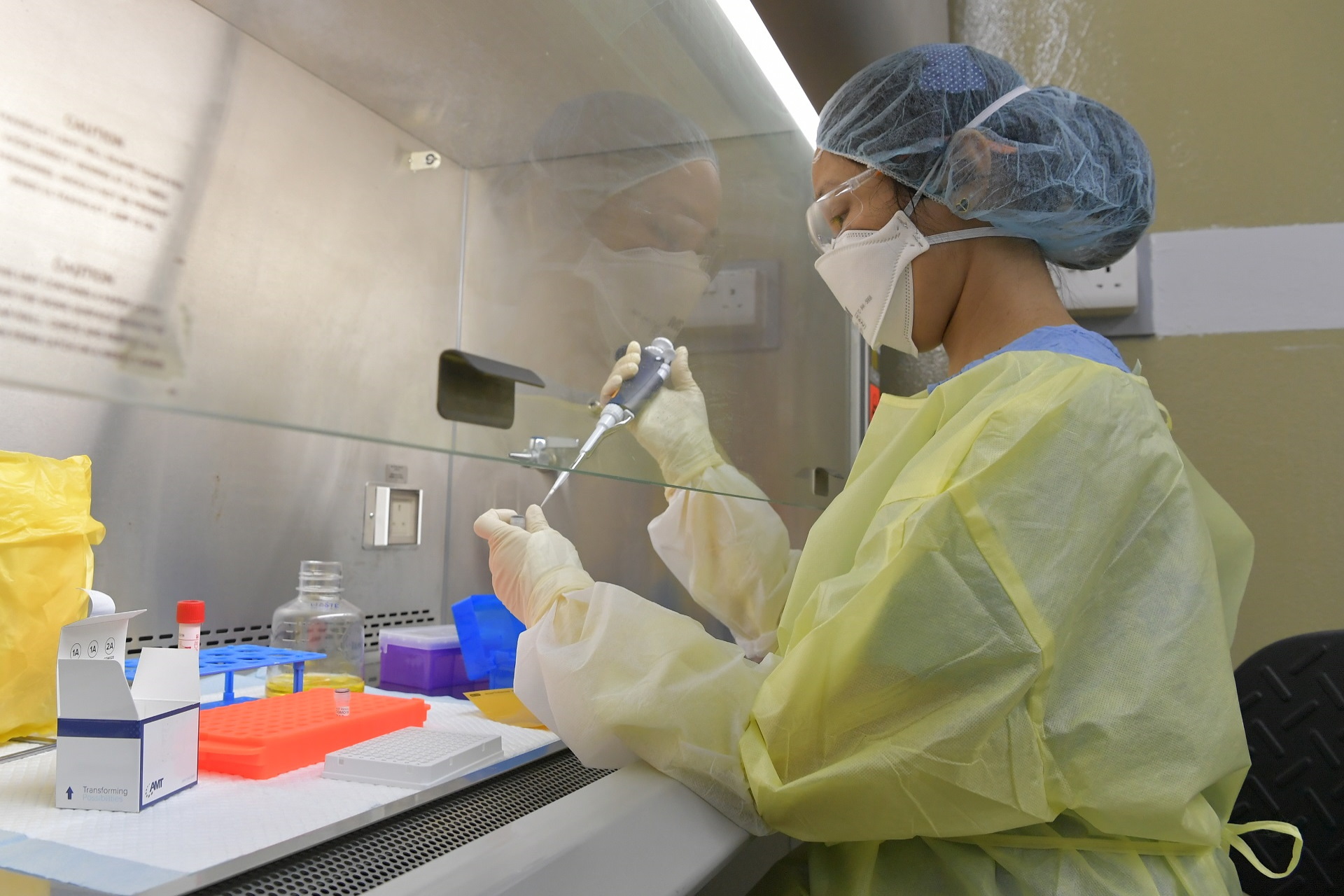
Prof Tan explained: "We were working on similar projects for the SAF, and when COVID-19 struck we took the processes and adapted them for the pandemic. That was how we could rapidly provide solutions. Until today, we're still evaluating the existing methods to find new methods that can shorten the testing time."
They're always ready to face off against the next pandemic
The Team was all geared up to battle against COVID-19 even before the virus reached Singapore, with the necessary assays, or investigative procedures, ready in January, Prof Tan revealed.
"When you work in biodefence, you will know ahead of time when something is happening," she said.
"We learnt that we always have to be ready and prepared. We can't be in a reactive mode, waiting for the infection to hit us. We were able to build up a lot of the capabilities because we were able to see ahead and start building up the technical competencies."
With the assays that were already in place following last year's monkey pox outbreak, the Team was able to build on the existing capabilities and brace the nation for the pandemic that was to come.
The Team has also been highly adaptable in coming up with solutions to meet the challenges COVID-19 had brought. For example, testing capacity was expanded; the research laboratory was converted to house more testing labs; and research staff from other teams within DSO was re-deployed as testers to help with the surge in number of tests required and the extended period of the testing exercise.
They're grooming the next generation of passion-driven scientists
Many of the scientists involved in SARS, like Prof Tan, who is now 50, are still in the team today, continuing in the battle against COVID-19. The Team continues to attract new and younger scientists to join their ranks. Prof Tan is heartened to see the younger generation of scientists display the same strength that their seniors did almost two decades ago.
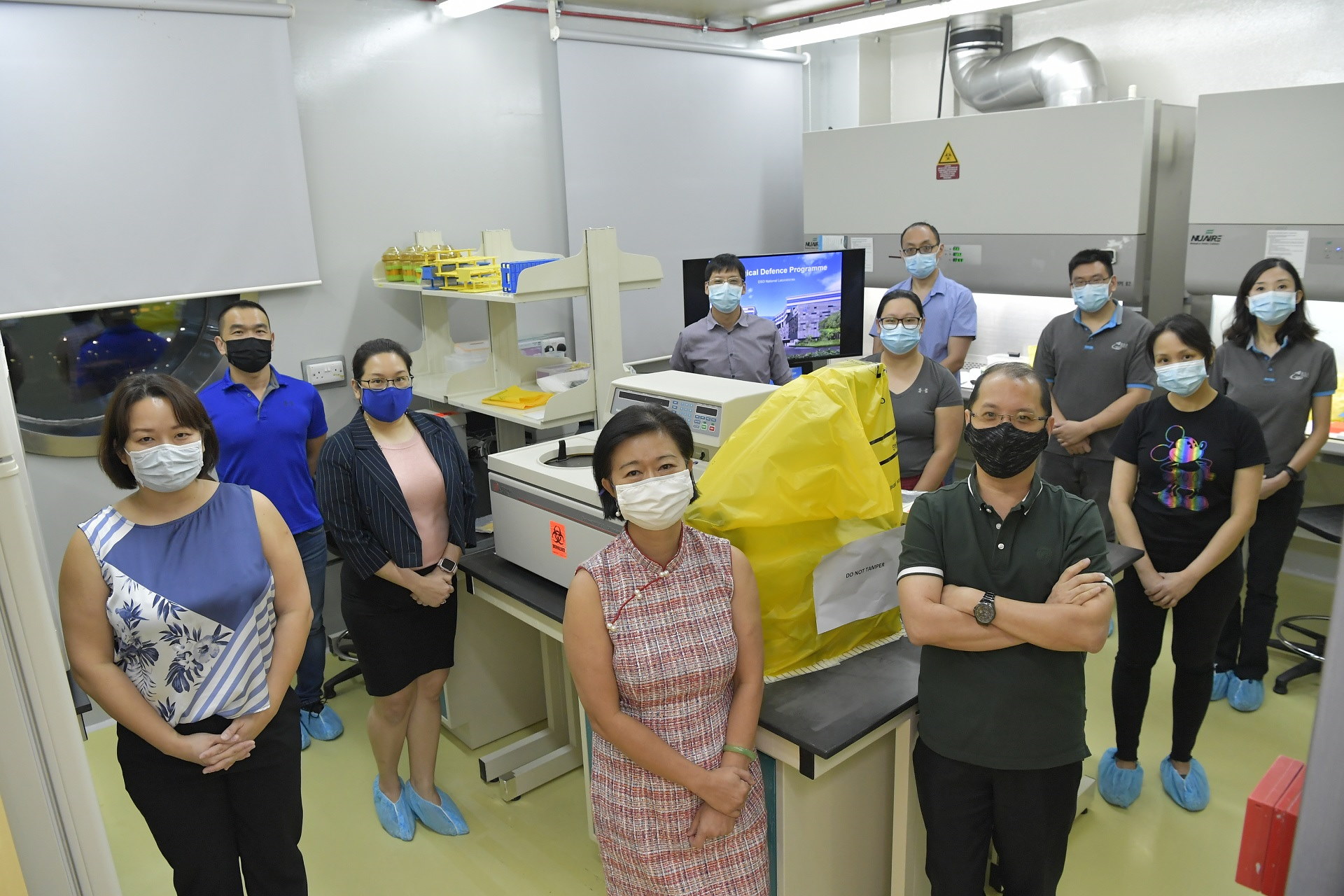
"During SARS, I saw my team keeping up their stamina when we were deployed to the Singapore General Hospital to help out (with pathogen identification).
"I see the same kind of resilience now (as they fight) COVID-19. Stamina, resilience, perseverance, and passion for their work. These are values we want the younger generation to have," she said.
"We are doing meaningful work to help the nation. So we are building up the next generation of researchers, and the older ones like myself who are still around, (are helping) to grow the youngsters."
ALSO READ IN TECHNOLOGY
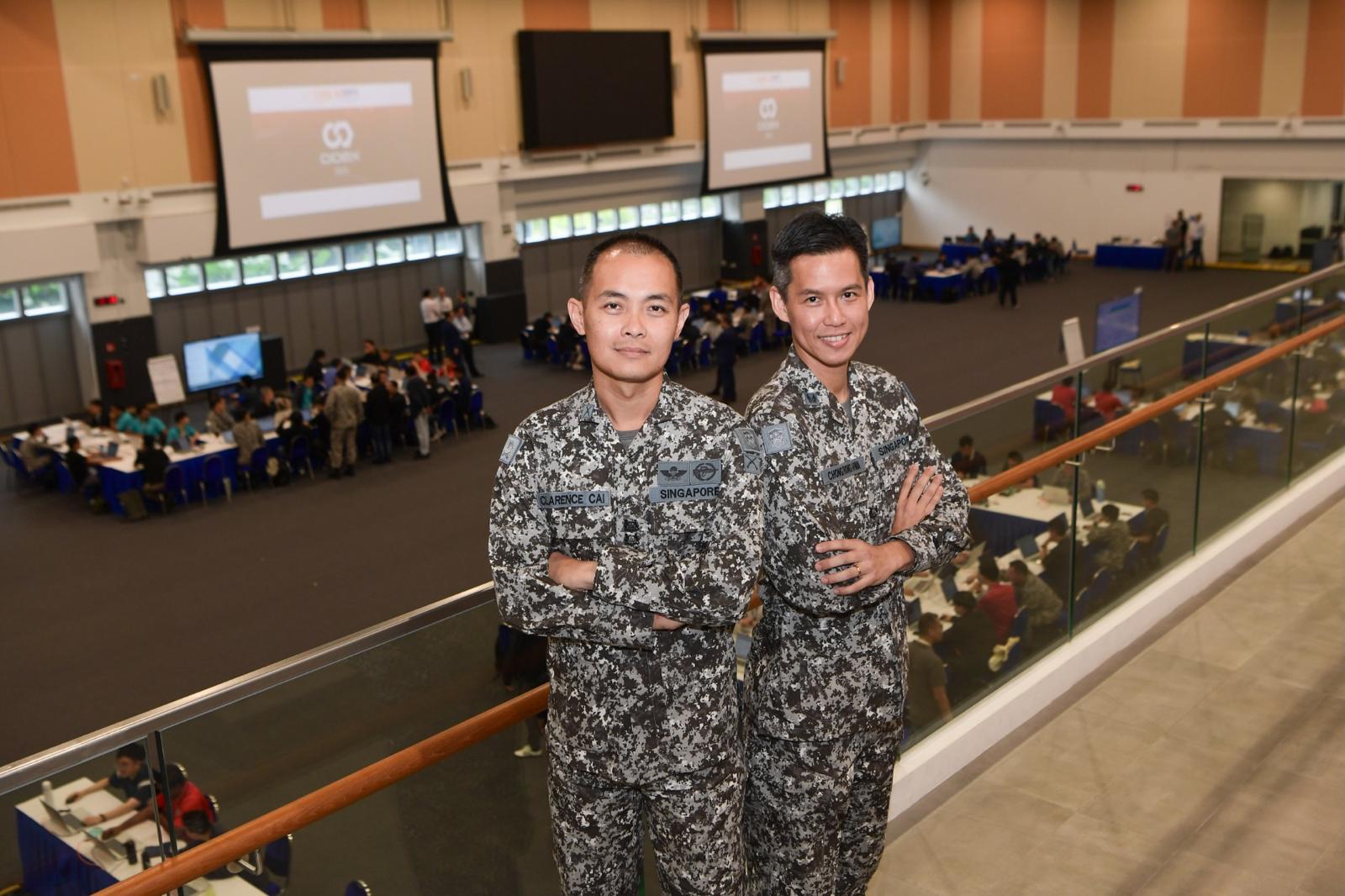
AI joins the fight in national cyber defence exercise
12 Nov 2025
AI and closer collaboration among agencies and industry are taking centre stage in this year’s Critical Infrastructure Defence Exercise (CIDeX).
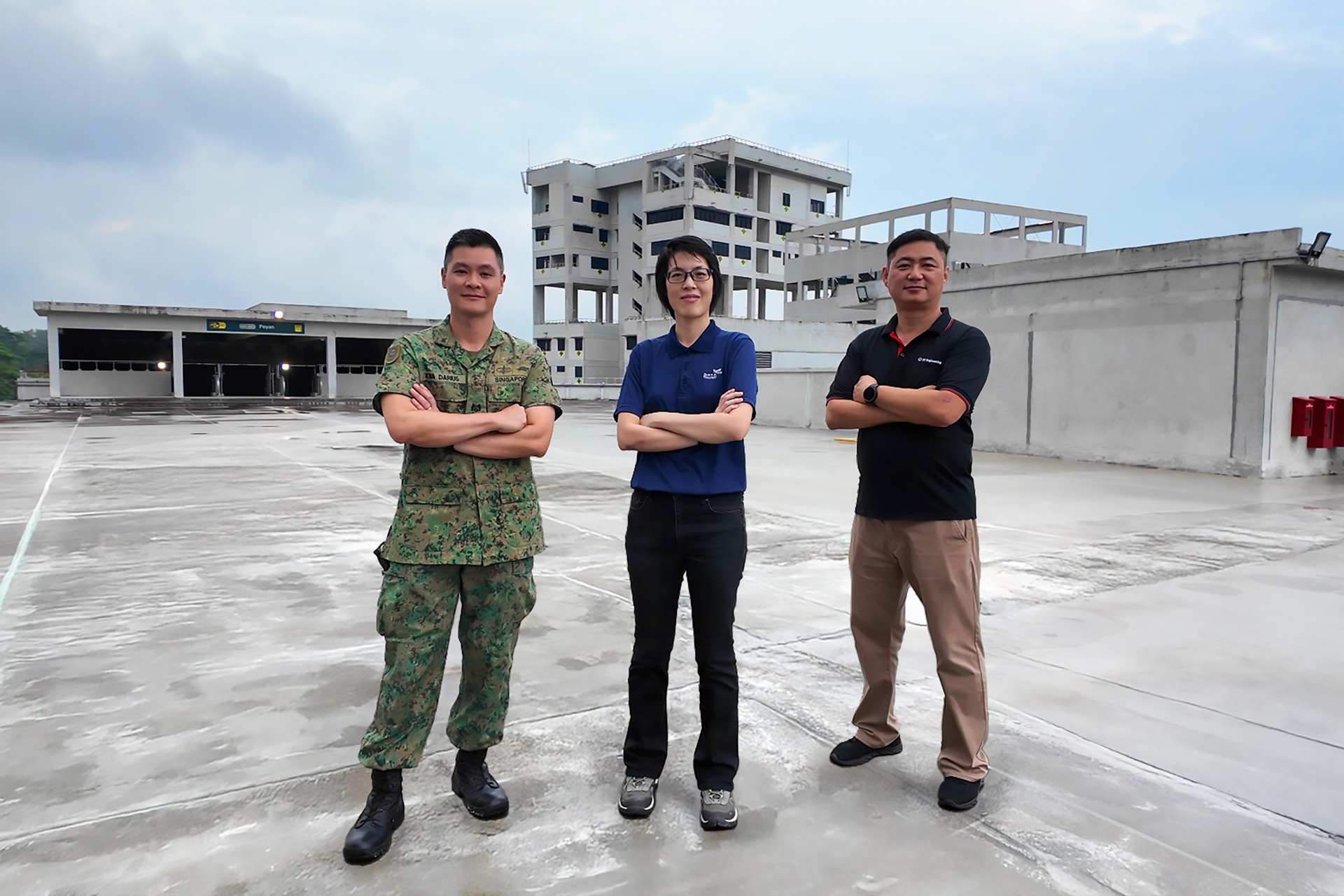
They built this city
01 Oct 2025
Turning vision to reality: the team behind SAFTI City clinches the Defence Technology Prize 2025 Team (Engineering) Award!
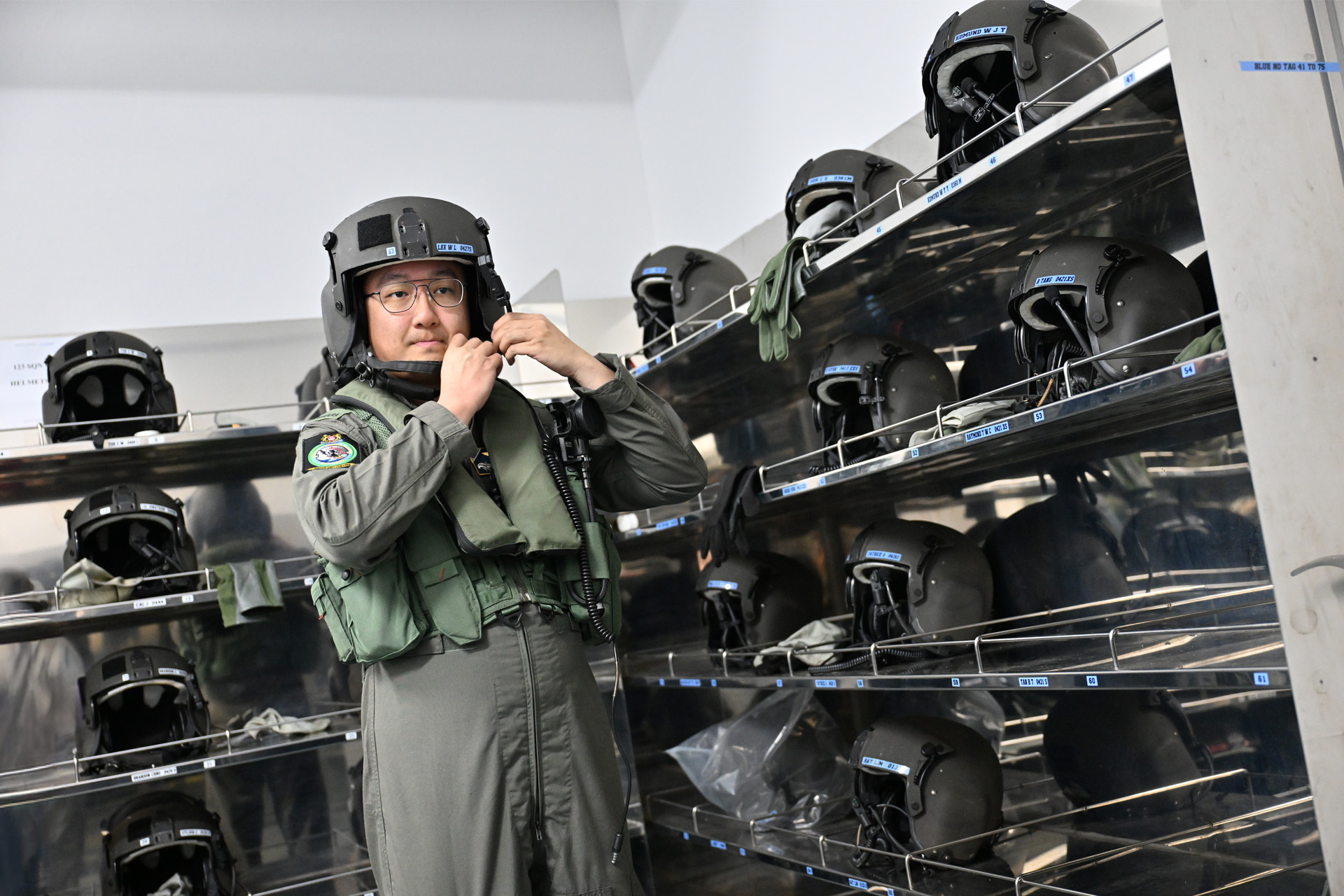
Operating over skies & seas
22 Aug 2025
This gear is designed to help a Sensor Supervisor survive emergencies in the air and at sea.


